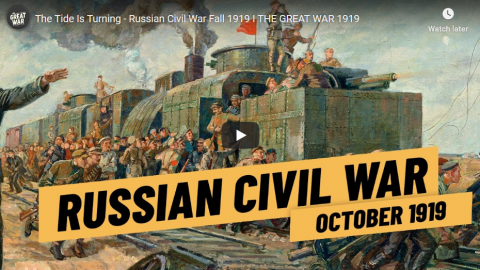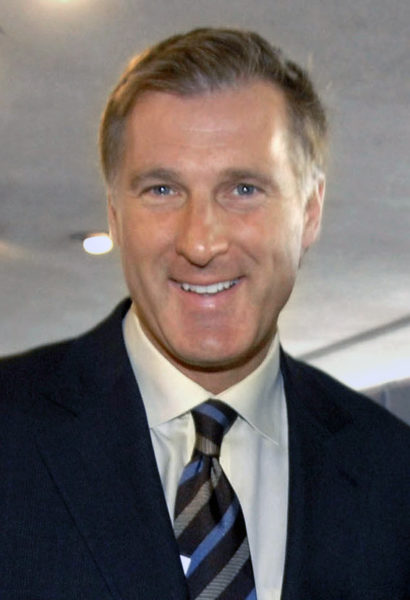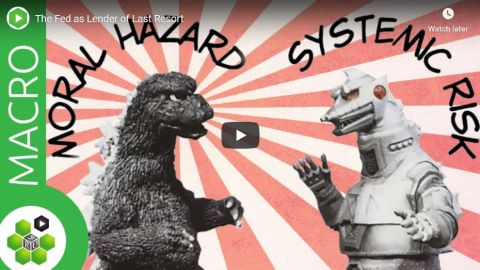The Great War
Published 14 Oct 2019Support 16 Days in Berlin: https://realtimehistory.net/indiegogo
The White Russian advance on Moscow comes to a crashing end as the Red Army manages to turn the tide of the Russian Civil War in Fall 1919.
» SUPPORT THE CHANNEL
Patreon: https://www.patreon.com/thegreatwar
Merchandise: https://shop.spreadshirt.de/thegreatwar/» SOURCES
Figes, Orlando. A People’s Tragedy. The Russian Revolution (London: The Bodley Head, 2017 [1996]).
Mawdsley, Evan. The Russian Civil War (New York: Pegasus Books, 2005).
Smele, Jonathan. The “Russian” Civil Wars 1916-1926 (London: Hurst, 2015).
Sumpf, Alexandre. “Russian Civil War,” in 1914-1918 online. International Encyclopedia of the First World War. https://encyclopedia.1914-1918-online.
Engelstein, Laura. Russia in Flames (Oxford University Press, 2017).»CREDITS
Presented by: Jesse Alexander
Written by: Jesse Alexander
Director: Toni Steller & Florian Wittig
Director of Photography: Toni Steller
Sound: Toni Steller
Editing: Toni Steller
Mixing, Mastering & Sound Design: http://above-zero.com
Maps: Daniel Kogosov (https://www.patreon.com/Zalezsky)
Research by: Jesse Alexander
Fact checking: Florian WittigChannel Design: Alexander Clark
Original Logo: David van StepholdA Mediakraft Networks Original Channel
Contains licensed material by getty images
All rights reserved – Real Time History GmbH 2019
October 15, 2019
The Tide Is Turning – Russian Civil War Fall 1919 I THE GREAT WAR 1919
Looking past October 21st
Jay Currie has already wasted his vote at the advanced polls (the same way I’m going to waste mine come election day), and now he’s considering what our parliament will look like on October 22nd (here’s a hint … we both know our guy isn’t going to be PM):
On October 22 we’re going to wake up to a politically very different Canada assuming that JT is unable to win a majority. The first thing which will change is Trudeau’s position. He could be Mr. Dressup with a majority but in a minority position – assuming he can form a government at all – his Teflon coating will have worn off. It is just possible that the bought and paid for Canadian media will rouse itself from its slumber and begin to ask slightly harder questions.
The second thing which will change is that third, fourth and even fifth parties will matter. For Trudeau to form a government he will need at least the NDP’s support and, perhaps, the Greens. To get that he is going to have to buy into a lot of nonsense which will be extremely bad for the country. The Liberals have plenty of idiotic policy but they don’t hold a candle to either the NDP or the Greens for economically useless virtue signalling.
Scheer would have an easier time of it in a minority position. His only possible ally would be the Bloc and while the Bloc wants to break up Canada they are financially sound and not nearly as eager as the NDP or the Greens for open borders and looney carbon taxes.
The key thing to remember is that regardless of who forms the government, that government is not going to last very long. In a sense, this election is about the next, more decisive, election. If Trudeau loses as big as he looks to be doing the Liberal Party will be looking for another leader. If Scheer ekes out a workable minority he will be looking to call an early election (in the face of the idiotic Fixed Terms act we have saddled ourselves with) to crush that new leader.
For Singh, especially if he picks up seats as well as popular vote, the election will cement his place as the NDP leader and silence the people who are talking about his unelectability. Lizzie May will be hailed as an emerging force in Canadian politics if she manages to pick up a couple more seats on Vancouver Island and, I suspect, that is exactly what she is going to do. (Old, white, retired, rich people just love a party committed to never changing anything.)
And what about Max? Obviously, he needs to hold his own seat. Which may be tough but I think he will pull through. I very much doubt he will win any other seats for a variety of reasons having nothing to do with Max or his policies. New parties take a while to gain traction. For Max, the biggest issue is how he does in the popular vote. Sitting at 1% is not going to cut it, but pop up over 4% and the table changes. Anything beyond that and Max will be the election night story.
The Fed as Lender of Last Resort
Marginal Revolution University
Published on 1 Aug 2017If you heard a rumor that your bank was insolvent (in other words, it had more liabilities than assets), what would you do?
A typical reaction is to panic. What if you can’t get your money out? Your next step would likely be to try and get all of your cash in hand.
The rumor could even be false, but if enough people responded as if it were true, it would still spell trouble. Even solvent banks can have illiquid assets. If the bank can’t pay out to its depositors, the panic can spread.
This is where the Federal Reserve System comes into play. The Federal Deposit Insurance Corporation (FDIC) insures deposit accounts. And, if the insurance isn’t enough or the financial institution isn’t covered, the Fed can act as the “lender of last resort” – it can loan enough money to a bank to cover customers who want their cash.
Why does this happen? Well, panics can be a threat to the entire banking system. If one financial institution falls, even if it is insolvent, it can have a domino effect.
If you think through very recent U.S. history, you’ll quickly come up with some examples of the Fed intervening. During the 2008 financial crisis, the Fed, along with U.S. Treasury and FDIC, stepped in to “bail out” insolvent U.S. financial institutions to minimize systemic risk.
But what happens when you know that the government will clean up the mess if you make risky investments? This is certainly a big problem facing the Fed. We’ll discuss the consequences in detail in this video.
QotD: Over-protected children become insecure adults
Kids need conflict, insult, exclusion – they need to experience these things thousands of times when they’re young in order to develop into psychologically mature adults. Every adult has to learn to handle these things and not get upset, especially by minor instances. But in the name of protecting our children we have deprived them of the unsupervised time they need to learn how to navigate conflict among themselves. That is one of the main reasons why kids and even college students today find words, ideas and social situations more intolerable than those same words, ideas and situations would have been for previous generations of students.
Jonathan Haidt, quoted by Naomi Firsht, “The Fragile Generation”, Spiked, 2017-08-31.







